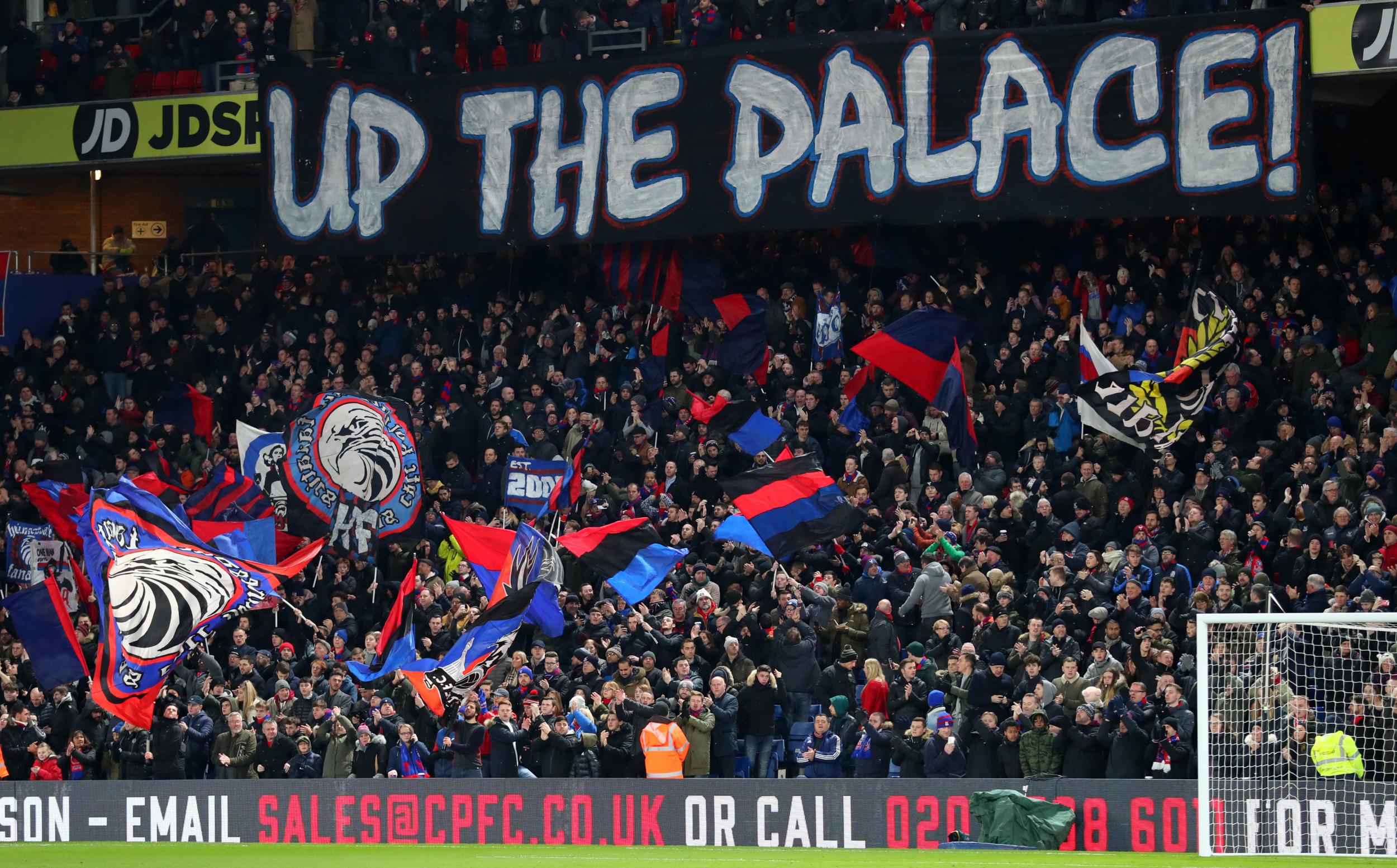Brighton travel to Crystal Palace for crucial meeting in the latest instalment of a rivalry fuelled by history
Palace host Brighton at Selhurst Park this weekend with both clubs’ immediate futures still in the balance, the renewal of a curious animosity which simmers over 45 miles from Croydon to coast

It might just be coincidence, but it seemed aptly timed on Friday when Crystal Palace fans lodged an official complaint over their treatment by Sussex police in November’s 0-0 draw at Brighton, only 24 hours before the two teams’ feud is renewed in a crucial Premier League match. This is the most recent sub-plot to one of English football’s more curious rivalries, one loosely bound by geography and tightly girded by history.
When the two sides met at the Amex five months ago, clashes outside the ground left six people arrested and two stewards in hospital; Sussex Police initially claimed Palace fans came armed with “knives and knuckledusters” but an investigation by The Independent proved this untrue, and the claim was retracted. Now the Crystal Palace Supporters Trust have written to the force complaining fans were struck with batons and “treated like cattle”.
On the pitch relations are just as fraught. Palace host Brighton at Selhurst Park this weekend with both clubs’ immediate futures still in the balance – Brighton have more points but perilous fixtures ahead, Palace have a gentler run-in but fewer points on the board.
This match is the latest edition in an animosity which simmers across 45 miles. It is sometimes called the ‘M23 derby’, or rather the A23 – one long Roman road which stems from London’s Waterloo roundabout, down through Croydon past Selhurst Park, over the South Downs, and ends in Brighton opposite the Palace Pier. It is a collision of city and coast, capital and provincial, two parts of the south-east without a whole lot in common.
But the real enmity is bedded in their past. This will be the 99th competitive meeting between the two clubs, a low figure for such a heated rivalry – for context, Manchester United and Liverpool have met 228 times. It is a feud that has sparked in fits and starts since the 1950s, fuelled by the rivalry of managers Terry Venables and Alan Mullery in the late 70s, and stirred into life in the 21st century, most acutely in the 2012-13 Championship play-off semi-final which Palace won en route to promotion.
Wilfried Zaha scored two decisive goals in the second leg of that tie, and his relationship with Brighton fans has remained frosty ever since. “I get so much stick from them but I don’t even want to talk about it,” he said this week, before talking about it. “I feel like there’s no need for us to have the debate. I don’t feel like they’re better than us. I am just looking forward to the game. We just need to get the game over and done with, beat them, and they can just go back to wherever they came from.”
Roy Hodgson has a decision to make over his attacking line-up on Saturday, with Zaha and Andros Townsend impressing in the 2-2 draw at Bournemouth last week while Christian Benteke is in dubious form and, like fellow striker Alexander Sorloth, faces a late fitness test. Chris Hughton, meanwhile, will be buoyed by the return of Anthony Knockaert following suspension, Brighton’s closest thing to their own Zaha.
The pressure will weigh more heavily on Palace, placed as they are in 17th, one position above the bottom three with only five games to play. Yet a victory here would move them one point behind 13th-placed Brighton, who would then be under pressure themselves given their perilous run-in, barefoot across hot coals, which goes: Tottenham (h), Burnley (a), Manchester United (h), Manchester City (a), Liverpool (a). Palace could barely have hand-picked a more brutal line-up for their old enemy.
Ultimately this is a game between two clubs desperate for the points they need to secure their Premier League status for another year. The stakes may make it something of a functional conflict, organised and tactical rather than thunderous and thrilling. But it is impossible to ignore the added substance that a rivalry like this brings: that for the winner, the prize of worsening the other’s plight is even greater than easing their own.
Subscribe to Independent Premium to bookmark this article
Want to bookmark your favourite articles and stories to read or reference later? Start your Independent Premium subscription today.

Join our commenting forum
Join thought-provoking conversations, follow other Independent readers and see their replies